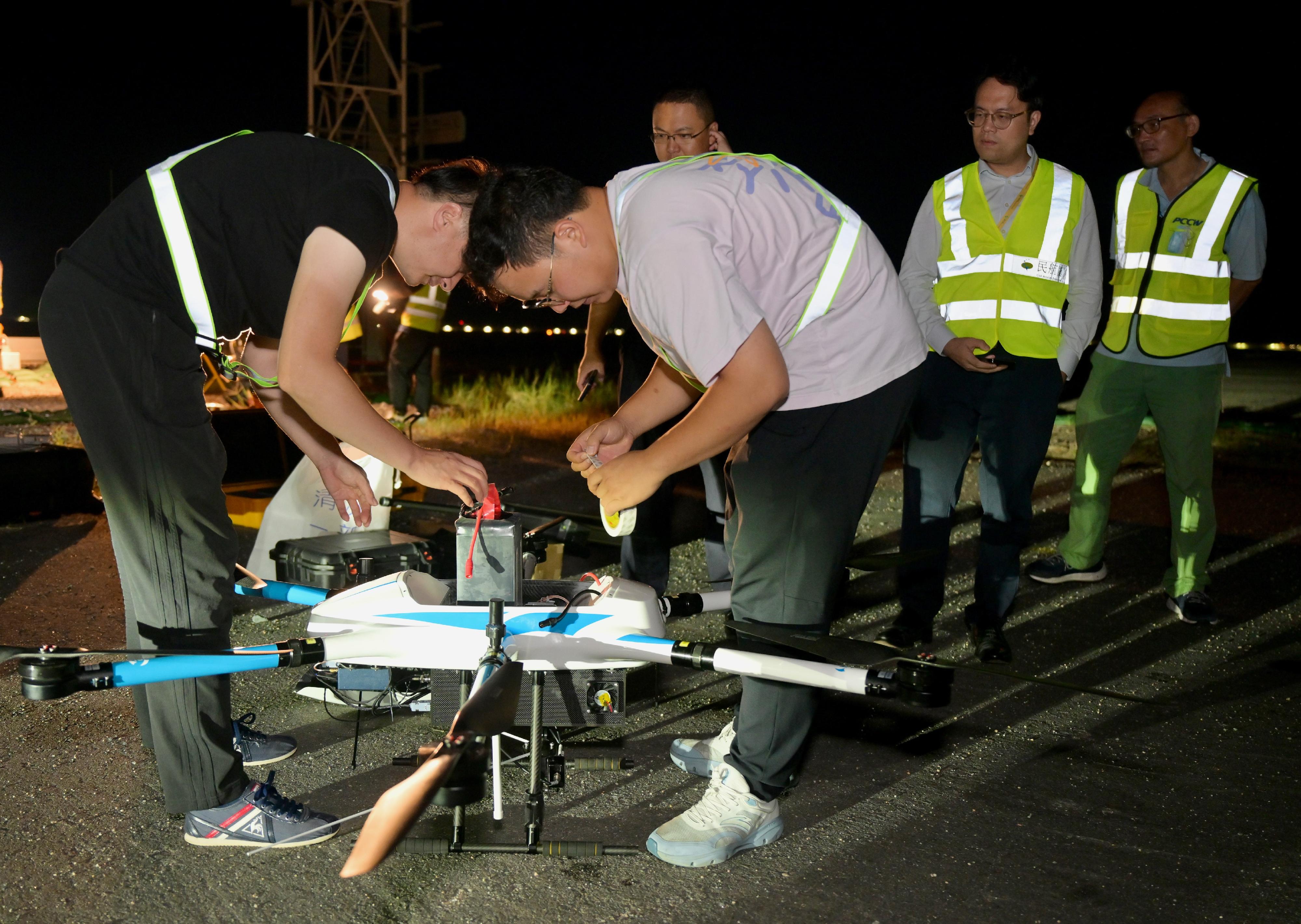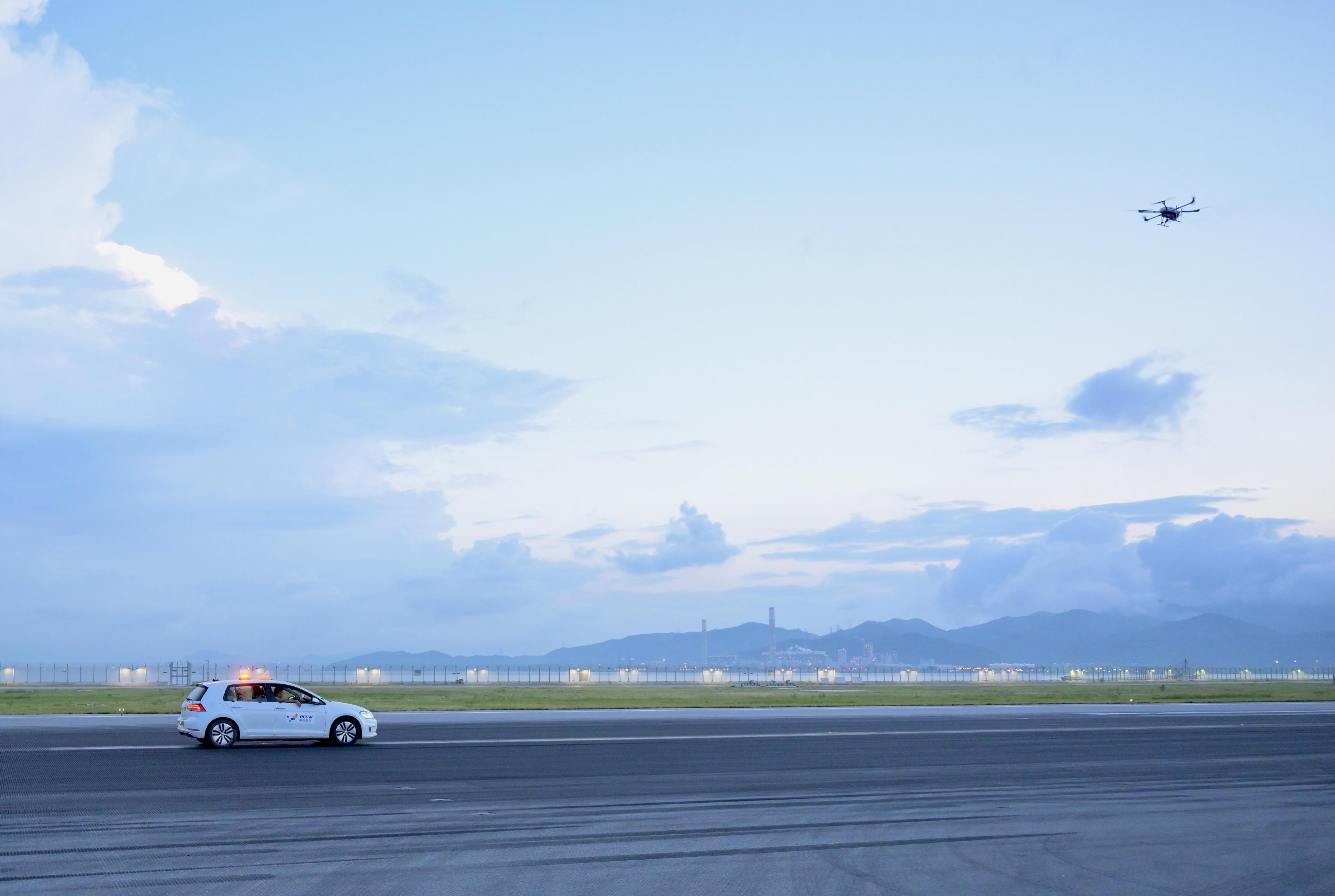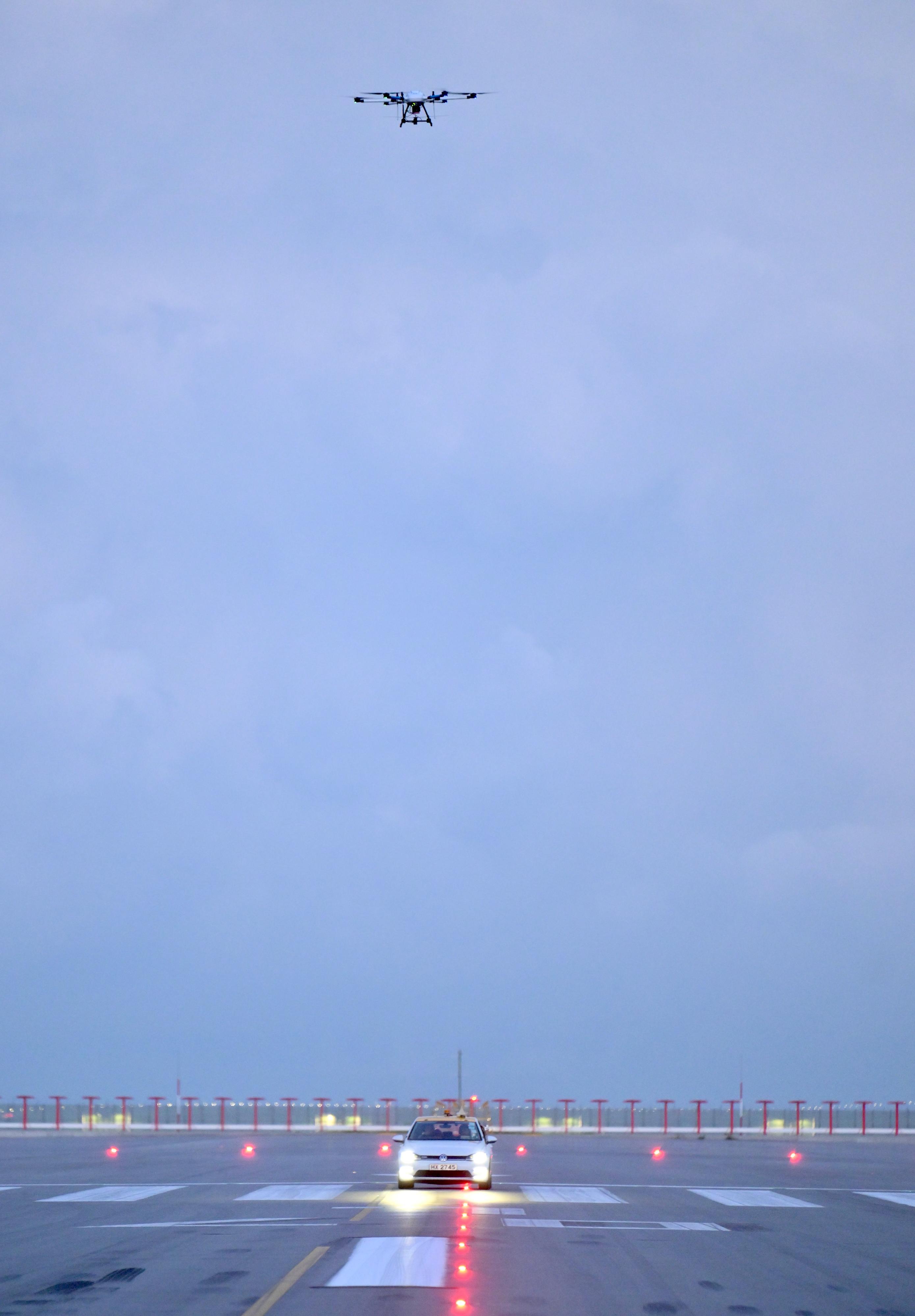CAD conducts trial flight inspection by small unmanned aircraft at HKIA to enhance efficiency (with photos/video)
The Civil Aviation Department (CAD) today (August 20) conducted a trial flight inspection by small unmanned aircraft (SUA) at Hong Kong International Airport (HKIA).
According to the standards of the International Civil Aviation Organization (ICAO), regular flight inspections on ground navigational aids at HKIA, such as the Instrument Landing System (ILS), are mandatory to ensure related operations are in compliance with the ICAO requirements. Regular inspections to the Airfield Ground Lighting System (AGL) are also conducted at HKIA in accordance with the ICAO requirements.
The ILS and the AGL are installed at the runway to provide guidance signals and visual guidance to pilots for landing. Flight inspections for HKIA have been conducted with results certified by the internationally recognised flight inspection aircraft and professional crew from the Flight Inspection Center (FIC) of the Civil Aviation Administration of China (CAAC). It has been a highly challenging task to carry out flight inspections efficiently with minimal disturbance to the busy HKIA and air traffic control operations. To enhance efficiency of flight inspections, the CAD has taken the initiative in exploring an innovative means on the feasibility of carrying out part of the flight inspection work by SUA. Generally speaking, carrying out flight inspection using SUA for the part over the runway is more efficient in deployment, flexible in flight manipulation and environmentally friendly as compared to using traditional flight inspection aircraft.
Spearheaded by the CAD and with full support from the CAAC FIC as well as the Airport Authority Hong Kong, the trial flight inspection by SUA was completed smoothly. The trial preliminarily testified that carrying out part of the flight inspections by SUA on the ILS and the AGL over the north runway of HKIA is more efficient in deployment with greater flexibility in flight manipulation and achieving zero carbon emission. Its inspection results are also in line with those obtained by traditional flight inspection aircraft.
To draw on the successful experience of the trial, the CAD, while keeping on to strengthen the collaboration with the CAAC FIC, will also continue the feasibility study of using SUA to carry out part of the flight inspections and conduct upcoming trials in conjunction with relevant stakeholders. The CAD will also keep close monitoring on relevant ICAO standards and guidelines being developed, with a view to enhancing efficiency and flexibility of flight inspections conducted for HKIA.


